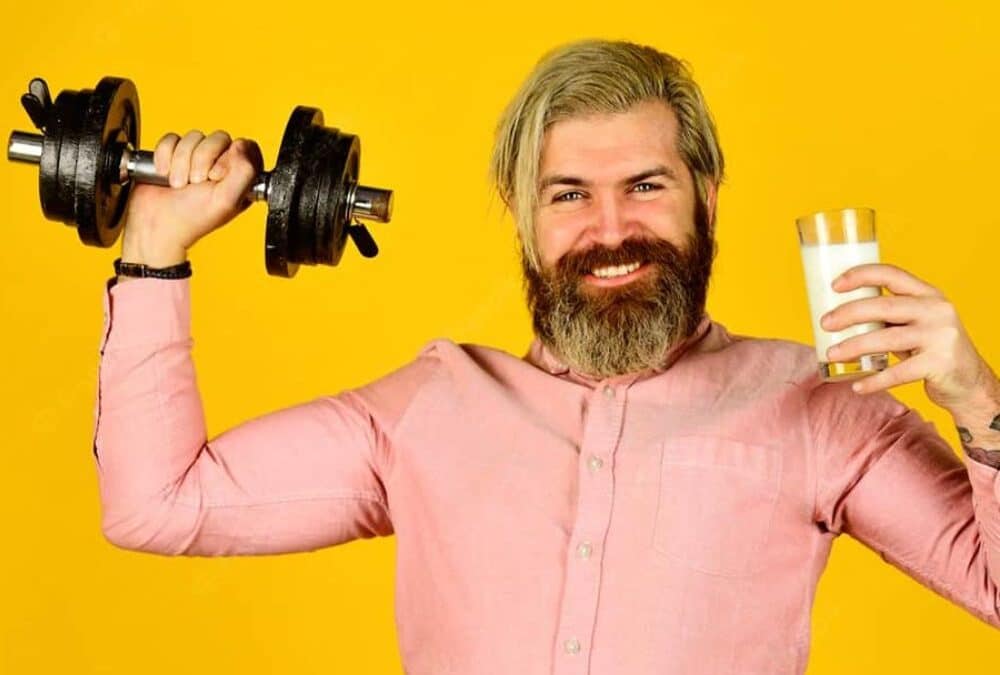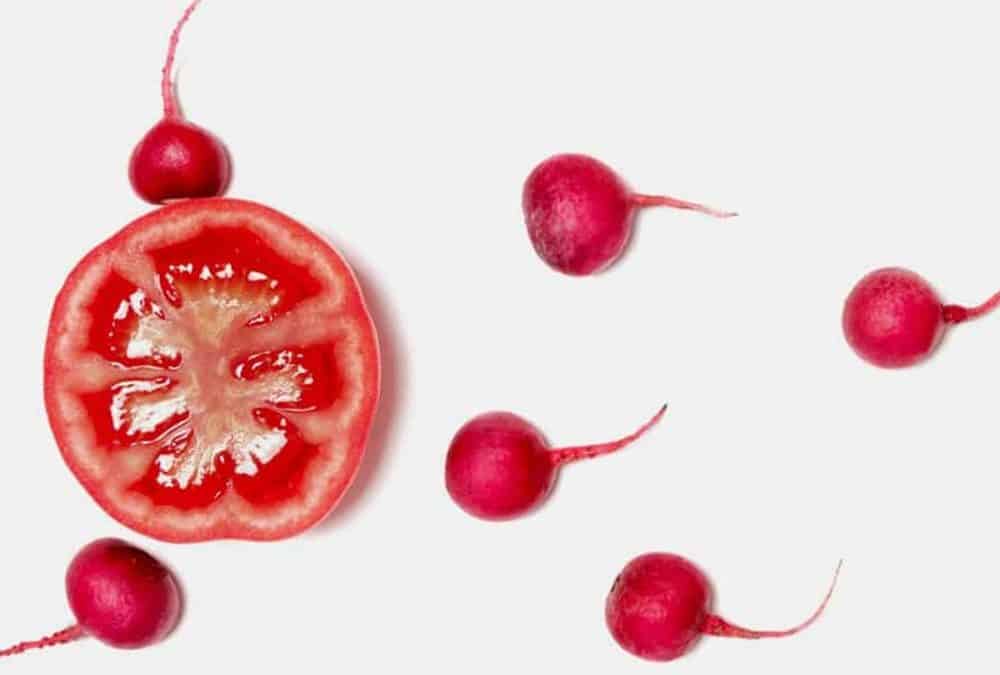Eating a
variety of foods from each food group is enough to help you get most of the vitamins and minerals you need to stay healthy. However, if you’re worried about aging, you may want to eat extra superfoods that can help your cells stay healthy.
There’s no one definition of a “superfood,” but the label tends to be given to foods or drinks that offer higher levels of health-boosting nutrients. Superfoods also frequently contain helpful molecules like antioxidants, which protect cells from free radicals and help heal the damage that builds up with age. Additionally, many superfoods have been shown to help reduce the risk of developing different chronic diseases.
Adding more of these foods to your diet may help you keep your body healthy and make you look and feel as young as possible as you age!
Blueberries
Blueberries are a powerful superfood that can help keep you healthy into your later years. These fruits contain antioxidants and other anti-aging molecules.
Blueberries can protect nerve cells from ROS and inflammation. This can help prevent or even reverse age-related problems with memory, cognitive abilities, balance, and motor function.
Blueberries also contain molecules called anthocyanins that help protect against disorders like diabetes and heart disease. They may even help protect against early death.
Nuts
Different kinds of nuts — including almonds, walnuts, pistachios, Brazil nuts, and pine nuts — provide healthy fats and protein and help protect against inflammation. Another big benefit of eating nuts is their ability to help prevent age-related health conditions such as diabetes, heart disease, and cognitive problems like Alzheimer’s disease and dementia.
Nuts may even help you live longer. One study found:
- People who ate nuts once per week were 89% less likely to have an early death.
- Those who ate nuts two to four times a week were 87% less likely to die early.
- Eating nuts five or six times per week led to an 85% reduced risk of early death.
- People who had nuts at least seven times a week were 80% less likely to die early.
Pomegranates
Pomegranates are a fantastic superfood that contain several anti-aging molecules.
Several substances found in pomegranates can help protect cartilage from being degraded. This may help keep joints healthy and protect against arthritis.
These fruits also contain molecules called ellagitannin and ellagic acid. When you eat pomegranate, the good bacteria in your gut transform these chemicals into urolithin A (UA). UA reduces inflammation and gives a boost to the mitochondria (small structures that make energy for your cells).
UA can also protect against age-related problems that appear in your muscles, joints, brain, and other tissues. In some laboratory studies, UA also helped animals live longer, although this has not yet been tested in humans.
Tomatoes
Eating more tomatoes may be an easy way to keep your skin healthy as you age. Tomatoes contain lycopene, a red pigment that also acts as an antioxidant. Pro tip: your body can absorb lycopene from tomato paste more easily than it can from fresh tomatoes.
Researchers have found that lycopene is present in your skin cells and in the oil that your skin produces, although levels decrease with age. Fortunately, eating more lycopene can increase how much of this molecule is present in your skin, bringing lycopene levels up to those seen in young adults. Studies have also found that eating more tomato paste protects the skin from sun damage.
Tomatoes may provide other benefits as well. Some research shows that eating more tomatoes can help reduce your chances of being diagnosed with serious conditions like heart disease and cancer.
Salmon
Salmon, as well as other fatty fish like trout, mackerel, sardines, and tuna, is a great source of vitamin D, protein, and healthy fats, making it an important superfood.
Levels of vitamin D in the body tend to drop with age. This is bad news for your bones, since vitamin D is needed to keep them strong and healthy. Low vitamin D levels mean an increased risk of weak or broken bones. Not getting enough of this vitamin also puts you at risk for certain age-linked diseases like high blood pressure, diabetes, depression, and cancer. Making sure you have enough of this vitamin as you age is essential.
Healthy protein sources also become increasingly important as you age. The older you get, the more muscle mass you lose. Eating higher levels of protein can help combat this and keep the muscles healthy.
The omega-3 fats found in salmon and other fish also help with healthy aging. They can reduce inflammation and protect brain health, helping prevent age-related declines in thinking and memory abilities.
Nonfat Milk
Milk and dairy products such as cheese and yogurt provide several important nutrients. Like fatty fish, milk is a good source of protein. In the United States, milk is also usually fortified with extra vitamin D, making it another good source of this vitamin.
Dairy foods also contain a lot of calcium, a mineral that is important for bone health. Low calcium levels can eventually lead to osteoporosis, a disease in which the bones become weak. Older adults may also be at risk for this condition because some medications may prevent the body from absorbing as much calcium as it normally would. Getting enough calcium from your diet is important at every age and can help prevent future bone problems.
Whole Grains
People who want to age well should look to whole grains. Try switching out white bread for whole wheat bread, refined pasta for wheat pasta, and white rice for brown rice. You can also eat more grains like quinoa, oats, or popcorn.
Research shows that middle-aged adults who eat more whole grains are more likely to have better physical and mental health, and are less likely to have chronic illnesses.
Turmeric
Turmeric is the super spice that gives Indian curries their yellow color. Turmeric contains a molecule called curcumin that can help improve many aspects of health and has some anti-aging properties.
Laboratory studies have found that curcumin can help worms, flies, and mice live longer. It’s not yet clear whether turmeric can affect lifespan in humans, but researchers have identified several ways in which this spice can affect aging.
Curcumin can boost the body’s own natural antioxidants. It can also turn off several genes linked to aging. Finally, it can lessen symptoms of certain health conditions linked to aging and inflammation, such as heart disease, diabetes, and cancer.
Water
While it may not be a “superfood” in the usual sense, water is an important nutrient that is vital for aging well. Your skin loses moisture as you get older, which makes it age. Staying hydrated is important for keeping all of your tissues healthy.
Your sense of thirst may also decrease as you get older, making it harder to remember to drink enough fluids. Additionally, staying hydrated is important when taking certain medications for chronic health conditions.
Make a plan to drink a certain number of glasses of water each day. Plan when you’re going to have drinks — don’t wait until you feel thirsty. Try having a full glass of water with every meal, and while taking any medication. If drinking enough water is difficult, you can also drink some low-fat or nonfat milk, or juice without added sugar or salt.
Diet Plans for Healthy Aging
























